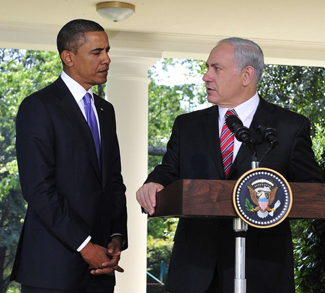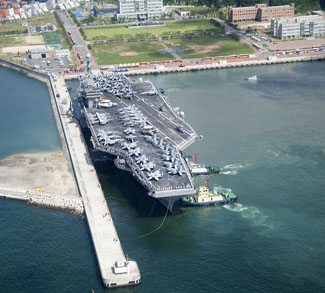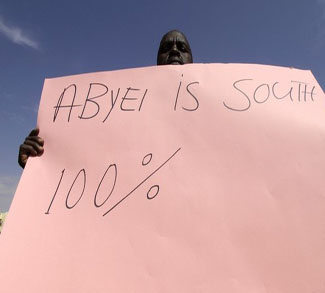The killing of four Israeli settlers near Hebron on the eve of a new round of peace talks in Washington has shifted the likeliness of forward progress in the peace process from ‘not likely’ to ‘not going to happen.’
It has been a long time since a round of Mid-East peace talks has had this much of a sense of futility before the negotiations have even started. The murder of four settlers will do much to inflame right-wing activists in the West Bank, many of whom have already taken to assembling building materials in protest of the temporary settlement construction freeze. However, even before this latest hurdle emerged, the prospects for peace were dismal at best. Prime Minister Benjamin Netanyahu has already come out and declared that the settlement freeze will not be renewed, risking an eventual walk-out by the Palestinian side when it expires.
Both the Palestinian and the Israeli governments preside over domestic political situations that make it hard to imagine a comprehensive compromise. On the Israeli side, Prime Minister Netanyahu would essentially trample his primary support base in any major disengagement from the West Bank. The Palestinian Authority on the other hand is not only weathering its own deep internal divisions, but also finds itself totally estranged from the Hamas government in Gaza, which would need to figure in to any final peace deal.
In the end, it seems that this round of talks is geared more towards creating the impression that President Obama is trying to drive the process forward than solving the deep-rooted issues that are at the root of the Israel-Palestinian conflict.
According to Haaretz, Netanyahu’s speech will err towards the hyperbole, opening with a line claiming that he is in Washington, “to figure out an historic compromise” and that “every peace begins with leaders.”
In a New York Times op-ed, Egyptian President Hosni Mubarak has made the argument that peace and settlements are ‘incompatible’ and that an international peacekeeping force should be stationed in the West Bank.




